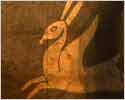 Formation Guidelines
Formation Guidelines
If you don't already have one, develop a consistent daily personal prayer life. If you already have one, nurture it and keep it up, as you will draw life and sustenance from it. The Contemporary Catholic Church and the Beloved Disciple Seminary place prime importance on the power of prayer and encourage all seminarians to explore this gift to its fullest.
As a seminarian, you will be assigned a mentor. This person is usually an experienced Catholic priest. The mentor's role is to act as a sounding board and guide for problems --- whether or not they are procedural, academic, spiritual , and/or ministerial problems. The role of the mentor is that of a "big brother" or "big sister" in providing you with encouragement on an ongoing basis. The mentor's relationship with you is different than that of the Bishop as the mentor is not your spiritual head nor will he/she ordain you. You will need to communicate with your mentor at least once every other week. Please note that the role of mentor is changed throughout the course of your studies so that the seminarian experiences a wide range of spiritual and pastoral leadership styles.
.
 Because the role of the spiritual community is vital to the formation process, all seminarians are required to attend the annual church synod. Instruction in certain topics provided at the synod can be used for partial seminary studies credit. Seminarians are also expected to contribute as active participants in the ongoing discussions that are conducted on-line with other members of the seminary and clergy of the Contemporary Catholic Church. This is an integral aspect of one's pastoral formation.
Because the role of the spiritual community is vital to the formation process, all seminarians are required to attend the annual church synod. Instruction in certain topics provided at the synod can be used for partial seminary studies credit. Seminarians are also expected to contribute as active participants in the ongoing discussions that are conducted on-line with other members of the seminary and clergy of the Contemporary Catholic Church. This is an integral aspect of one's pastoral formation.
It is also important that you maintain an ongoing relationship with your Bishop. This is part of the Apostolic tradition and will bring you into fuller communion with your spiritual power. Accordingly, you will need to communicate with the Bishop at least once a month, either by letter, email, or by telephone
Each candidate is asked to contribute time in voluntary service within her or his own community. Community service is required to both understand the nature of serving and to understand the social dimensions of the Gospels. In volunteering, we have the opportunity to move from the abstract and theoretical study of religion into the practical world of day-to-day service to God.
 Policy of Ordination
Policy of Ordination
The Beloved Disciple Seminary does not discriminate in admission or access to its programs and activities on the basis of race/color, national origin, disability, age, marital status, sex, socio-economic or veteran status. At the same time, applicants are reminded that completion of a seminary program does not constitute a guarantee of ordination in the Contemporary Catholic Church. Ordination decisions are only within the competency of ecclesiastical authority.

